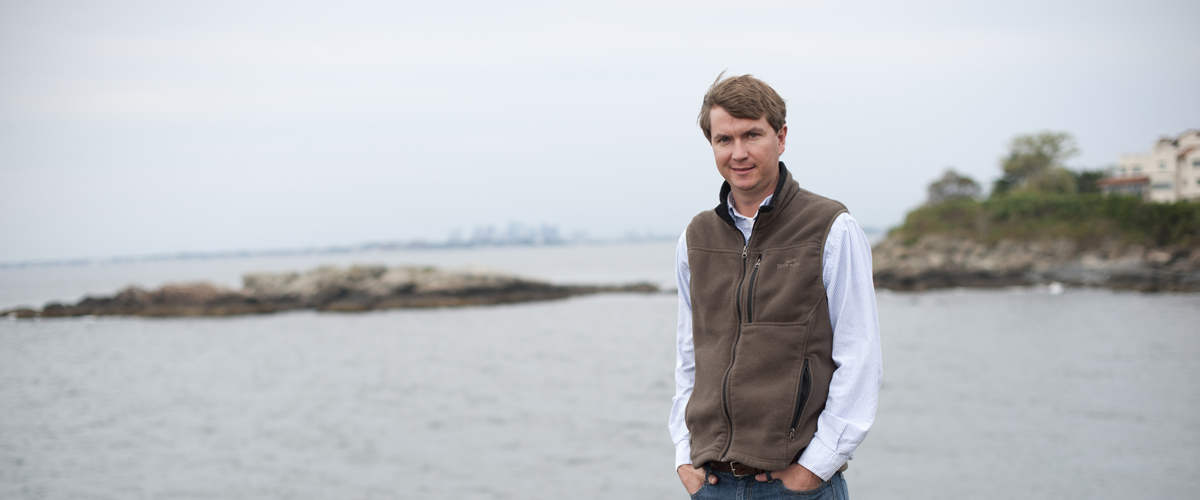Steven Scyphers, a postdoctoral researcher at the Marine Science Center, has won the Best Paper of the Year award for 2013 from American Fisheries Society. The paper is titled, “Gulf-wide Decreases in the Size of Large Coastal Sharks Documented by Generations of Fishermen,” and it was published in Marine and Coastal Fisheries.
The College of Science posed a few questions to Scyphers about the paper and his research.
Can you briefly explain what your paper is about and why it is important to document to decrease in size of large coastal sharks?
The goal of our study was to understand how shark populations in the Gulf of Mexico have changed over time and if shark fishers recognized these changes. Unfortunately, however, we don’t have traditional fisheries data that date back more than a few decades in most cases. Looking for resources that would allow us to look back a bit further, we found that local newspapers had extensively publicized the results of three major fishing rodeos or tournaments for the past 80-plus years. We used the historical photographs and data from these sources to reconstruct shark populations and found that larger and larger sharks were winning these tournaments for the first several decades up until the 1970s or 1980s. This makes a lot of sense considering that fishing boats and gear became a lot more advanced during this time, and the number of fishers was increasing, as well. However, around the late 1980s, our research showed that the size of prize-winning sharks started getting smaller pretty quickly, and the timing of this decline aligns with a period of rapid growth in the commercial longline fishery for sharks. By surveying the actual shark fishers, we found that only older fishers clearly recognized that prize-winning sharks of the 2000s fail to rival the 600-800 pound giants of several decades ago. Understanding precisely when a fishery’s decline occurred is critically important for developing effective strategies that promote full recovery. We believe that our study shows it’s also very important to understand how fishers perceive these changes since their decisions to land or catch-and-release such long-lived species like sharks is very important for fisheries sustainability.
How does this study relate to your research on fisheries management?
The survey that was part of this paper really helped kick-start a lot of my research on the human dimensions of fisheries management. Fishers and other key stakeholders can play really important roles in detecting changes in marine ecosystems, as well as implementing conservation and management initiatives. Much of my current research strives to identify the settings and contexts when their involvement is most successful.
Is there a way to reverse or slow down the change in these large coastal sharks?
Most definitely, and these same data sources show that recovery may already be happening for some species. This is likely attributable to both better management and greater public awareness of the ecological role that large sharks play in marine ecosystems.
What do you hope winning best paper award in the area of marine and coastal fisheries will do for your research?
The Best Paper Award was a really nice surprise. The American Fisheries Society is the largest group of fisheries scientists and managers in the world, and the award gives our paper great exposure. My hope is that this convinces other scientists and managers that including fishers in their work to understand and manage fisheries is both important and valuable.

